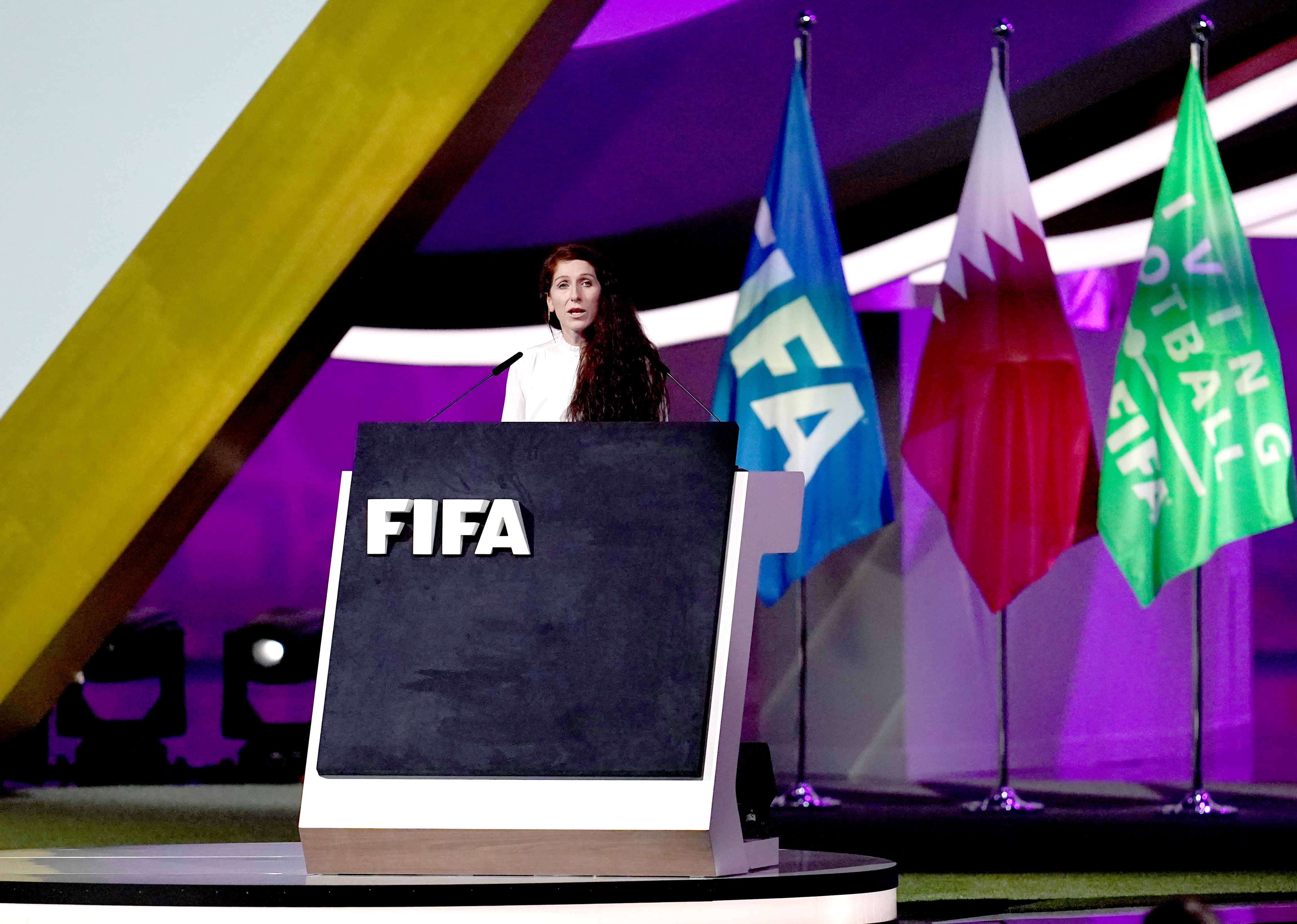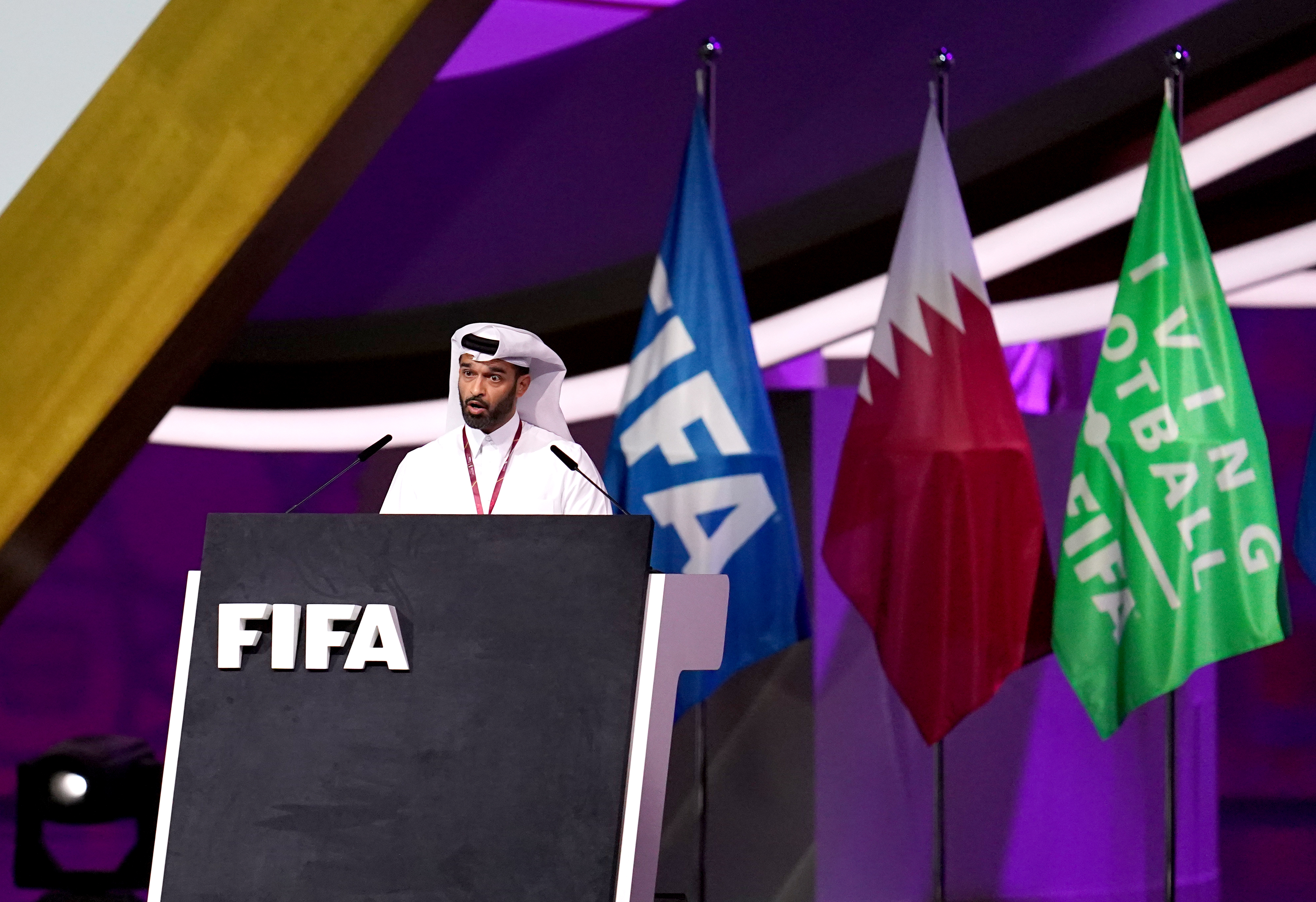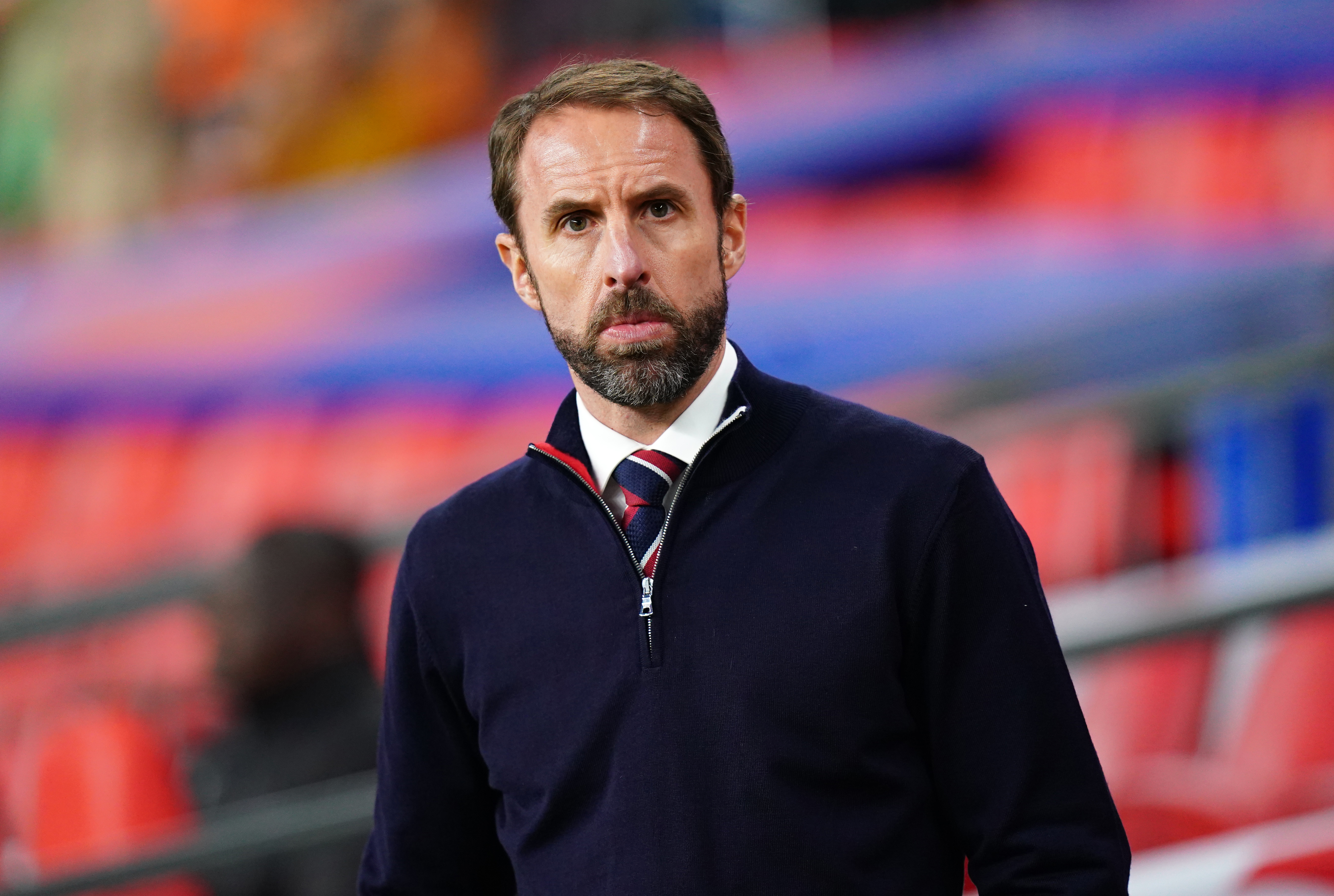Qatar’s right to stage World Cup questioned amid calls to ensure LGBTQI+ safety

Qatar’s right to stage this year’s World Cup was publicly questioned at FIFA Congress in Doha, with the president of the Norwegian federation saying there was “no room” for hosts who could not legally guarantee the safety of LGBTQI+ people.
Lise Klaveness delivered an impassioned address demanding that FIFA “act as a role model” and ensure that it takes a more ethical approach to selecting hosts in future.
It came on the same day that a group of 16 organisations which support LGBTQ+ rights urged FIFA and Qatar’s Supreme Committee to provide safety guarantees to members of that community.
Same-sex relationships are directly criminalised under the laws of the Gulf state, leading to concerns over the well-being of LGBTQI+ people visiting the country for the tournament and those from that community who reside there.
Calls out for change!— NorgesFotballforbund (@nff_info) March 31, 2022
“Football for boys and girls, all colours, straight and queer,” Klaveness said.
“In 2010, World Cups were awarded by FIFA in unacceptable ways with unacceptable consequences. Human rights, equality, democracy, the core interests of football, were not in the starting XI until many years later.
“FIFA has addressed these issues, but there is still a long way to go. The migrant workers injured or families of those who died in the build-up to the World Cup must be cared for by FIFA, all of us must take all necessary measures to really implement change.
Get FourFourTwo Newsletter
The best features, fun and footballing quizzes, straight to your inbox every week.
“FIFA has recognised its responsibilities under the UN guiding principles for human rights and now includes human rights criteria for future World Cup hosts. It is vital that the current leadership continue wholeheartedly in this way.
“There is no room for authorities who did not secure the freedom and safety of World Cup workers.
“No room for hosts that cannot legally guarantee the safety and respect of LGBTQ+ people coming to this theatre of dreams.”

Hassan Al Thawadi, the secretary general of the supreme committee for delivery and legacy of Qatar 2022, criticised the manner of how Klaveness had spoken out.
“For years and decades our region and our country has too often been defined through a prism of conflict, war and the ensuing stereotypes and assumptions that result from a lack of familiarity, a lack of understanding and have highlighted the divisions between east and west,” he told Congress.
“The most important legacy of this World Cup will be to serve as an antidote to this criticism.
“I would like to express disappointment. Madame president visits our country and made no request for a meeting, did not attempt to contact us and did not attempt to engage in dialogue before addressing Congress today.
“I urge everybody, we have always been open to dialogue. We have always welcomed constructive criticism. Constructive criticism that is based on discussion, understanding the issues, and understanding the context of the issues.
“We will always have our doors open for anyone who wants to understand the issues and educate themselves before casting judgement.”
The initial decision to award the World Cup to Qatar was criticised amid allegations of corruption in the bidding process.
Current president Gianni Infantino described the FIFA regime which awarded Qatar the World Cup back in 2010 as a “toxic organisation” during his Congress speech but defended the decision, highlighting the progress that has been made in the country over the last 12 years.
“When it comes to the Qatar World Cup, a decision has been taken. Twelve years ago I was far from the happenings of FIFA,” the Swiss said.
“We have now put in place a different bidding process which I think is also pretty unique. I said in the past it is bulletproof, I hope it will continue to be bulletproof because it’s open, it’s transparent, it’s professional, there is a ranking. You know why you vote for somebody when you vote for somebody.
“We have organised the best World Cup ever here in Qatar. And in any case, you know, we shouldn’t go back, we should look forward, we should go look at all the changes that have happened in this country, in terms of human rights and workers’ rights and so on.
“It would not have happened, or certainly not at the same speed, without the projectors of the World Cup being there.”

The chief executive of Amnesty UK Sacha Deshmukh said the issues surrounding Qatar still hung over the tournament like “a dark cloud”.
“We’re now effectively in the final countdown to kick-off, yet despite reforms there are still very serious unresolved labour issues hanging like a dark cloud over this tournament,” he said.
“Unexplained migrant worker deaths, workers being cheated of their wages and others working extremely long hours are just some of the issues that Qatar’s patchily-enforced new laws are failing to address.
“After years of Qatar’s migrant workers being exploited to prepare the country to host the World Cup, we now fear that large numbers of people working in the hospitality and security guard sectors could face similar exploitation.
“It’s encouraging that Gareth Southgate and some of the England players have recently spoken about human rights in Qatar, and we would like to see them continuing to use their public platforms to help shed light on the situation of migrant workers in Qatar.
“We’d like to see the FA in particular taking concrete measures to ensure that England’s participation in the tournament doesn’t cause or contribute to further human rights abuses.
“The FA should – among other things – engage directly with the workers they may encounter during their stay in Qatar, intervening where possible to ensure workers are paid on time and in full, and seeking to ensure that workers are not overworked and are able to live in decent accommodation.”
